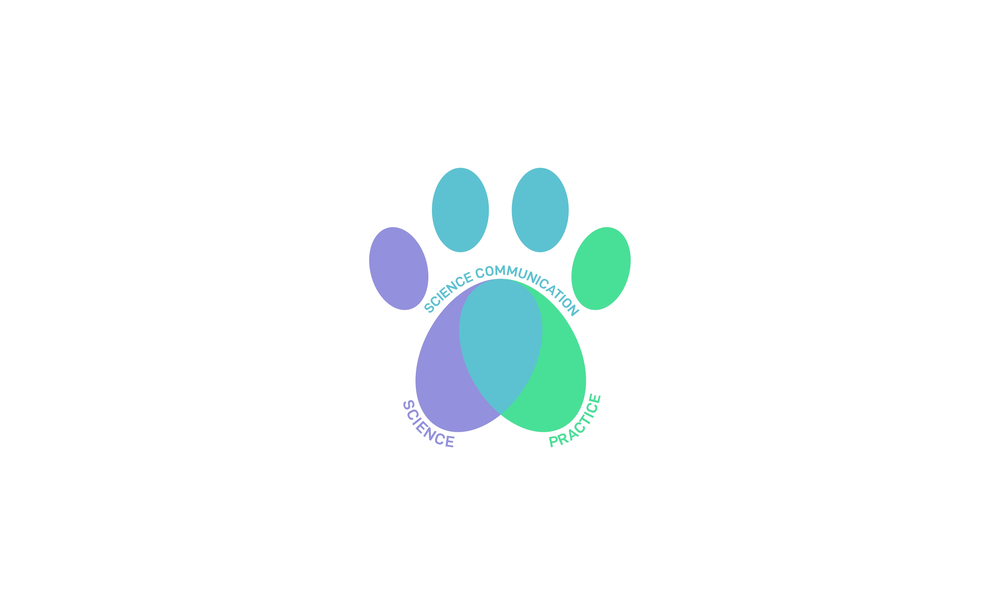Table of Contents:
Understanding the Commitment: Puppy vs Adult Dog
When beginning the journey of adding a new dog to your family, understanding the breadth of commitment required for a puppy or adult dog is fundamental. This early stage of decision-making is crucial as it reflects your readiness to adapt your life to the needs of your chosen canine family member. Puppies can indeed bring a wave of vibrancy into one’s life. However, they also usher in an era of comprehensive training and socialisation. Initial months are laden with teaching basic signals, setting house rules, and a great deal of patience as they learn to navigate their new world.
In contrast, considering an adult dog often implies a milder curve of adjustment. Their past experiences, whether in a shelter or a previous home, may have equipped them with a foundation of training and an established personality. This experience can often translate into a more discernable fit into your life from the start. However, this does not discount the dedication needed to foster trust and allow for adjustments as they settle into a new environment. Both choices necessitate a sincere reflection on your capability to provide consistent care and attention.
"Every dog deserves a home, but not every home is right for every dog. It's crucial to match your commitment with the right companion."
An honest consideration of these factors ensures that the welfare of the dog is prioritized, and the joy that comes with canine companionship is optimised. Deciding between a puppy or adult dog hinges on an accurate self-assessment of your preparedness to meet their needs for the years to come.
Lifestyle Match: Assessing Your Daily Routine
Aligning your lifestyle with the needs of a new dog is a pivotal step in the decision-making process. An accurate assessment of your daily routine is essential to determine whether a puppy or an adult dog will better suit your way of life. For those who lead an active lifestyle with ample time to engage in outdoor activities, a puppy may be an ideal companion, ready to match your energy and vigour. They will revel in the hikes, runs, and spontaneous adventures that fill your days.
Conversely, if your lifestyle is more settled or your work demands significant hours away from home, an adult dog's oftentimes typically lower energy requirements and capacity for longer periods of relaxation may be more compatible. Such dogs often appreciate a decent walk followed by a serene evening, which might mirror your own need for a peaceful reprieve after a busy day at work.
It is also worth considering how social your environment is. Puppies often demand socialisation to prevent behavioural issues in the future. This means exposing them to various people, pets, and situations. If your current lifestyle cannot accommodate this, an adult dog with a known temperament around others could be the better option.
"A dog's life is tethered to the rhythm of their human's life; ensuring harmony between your activity levels and theirs is key to a happy coexistence."
Pros and Considerations: Puppy vs. Adult Dog Adoption
| Pros | Cons | |
|---|---|---|
| Puppy |
|
|
| Adult Dog |
|
|
Time Investment: Training Needs for Puppies and Adult Dogs
Embarking on life with a new dog entails a substantial allocation of your time, with the training needs of puppies and adult dogs varying significantly. Puppies are akin to a relatively blank canvas, requiring consistent and methodical training to shape them into well-behaved adult dogs. The tasks range from crate training and mastering the art of walking on a leash to learning simple signals, all of which lay the groundwork for a harmonious relationship.
Adult dogs, while potentially familiar with the basics, may still necessitate a considered amount of time for training. It is vital to either reinforce previous training or to introduce new routines and train new or alternative behaviours. Moreover, adult dogs might need additional attention to unlearn unwanted habits or behaviours that have been previously established, which is a task requiring commitment and possibly professional guidance.
The concept of investiture in a dog extends beyond the initial training period; it spans their entire life. Continuous learning and training not only ensure their safety but also maintain mental stimulation, prevent boredom, and strengthen the bond between dog and owner. Careful consideration of your capacity to provide this ongoing investment of time will ensure a more fulfilling and enduring companionship.
Energy Levels: Puppy Playfulness vs Adult Dog Calmness?
Matching the energy levels of your new canine companion to your own can greatly influence the satisfaction of your shared life together. The typical playful exuberance of a puppy is delightful yet demanding. Their boundless enthusiasm needs an outlet, and without appropriate activities, they may resort to less desirable ways to burn off that zest.
On the flip side, adult dogs may display a calmer demeanour, offering a sense of predictability when it comes to energy output. This laid-back attitude can be a welcome attribute for individuals or families seeking a less intense daily routine. Their contentment in balance—active sessions of exercise interspersed with periods of rest—can provide a comforting and manageable rhythm to your days.
Before settling on the decision between a puppy or an adult dog, ponder the compatibility of your energy levels with theirs. This reflection not only affects the immediate integration into your home but also has long-term implications for the happiness of both you and your dog.
Predictability Factor: Surprises with Puppies and Adult Dogs
Delving into the predictability factor is a critical step in choosing a puppy or an adult dog. With puppies, one often faces a degree of uncertainty – their development is ongoing and their future personalities are blossoming. Although genetics play a role, their environment and experiences will greatly shape who they become as adult dogs.
Opting for an adult dog, conversely, you gain a clearer picture of the dog's established demeanour and health status. This clarity helps in forecasting how well they will blend into your existing household and routine. Whether they have a mellow attitude or a spirited nature, an adult dog's character is generally more transparent, allowing for an educated selection that aligns with your preferences and circumstances.
Thus, when facing the choice between puppyhood’s surprises and the adult dog’s established traits, giving thought to the level of predictability you are comfortable with can guide you towards a more informed and satisfying decision.
Bonding Experience: Forming Emotional Connections
The process of bonding with your new dog is a profound journey, impacting your relationship's depth and quality. With a puppy, the bond develops as you shape their experiences, mould their habits, and guide their education. Witnessing each milestone firsthand—from their first successful command to the routine of your daily walks—creates a tapestry of shared memories and deep emotional connections.
Selecting an adult dog bypasses the early developmental stages, but it also introduces the opportunity to build trust and companionship with a being who has a pre-existing view of the world. The mutual adaptation and growth between you and an adult dog can be just as enriching. Every milestone, whether it is responding to a new name or finding comfort in their new bed, is a testament to the strength and progress of your bond.
"The strength of the bond with your dog is not solely tied to the age at which they join your life, but to the quality of the moments you share."
Whether you opt for the vigour of puppyhood or the settled nature of an adult dog, the emotional investment made will shape the unique bonding experience that ensues. It is this connection that becomes the core of your relationship with your dog, transcending age and time.
Health Considerations: Choosing Based on Dog's Age
Considering the health aspects of a canine companion is a vital component in deciding between adopting a puppy or an adult dog. With puppies, early vaccinations play a pivotal role in setting up their immune system for a healthy start. As they grow, monitoring their development helps to ensure they are on track and any congenital health issues are addressed promptly.
An adult dog may have a documented health history, providing insight into their well-being and any medical attention they may require. This knowledge allows you to prepare for their care adequately and to anticipate any breed-specific health concerns that could emerge with age. An awareness of their existing health status aids in making a well-informed decision, avoiding unforeseen medical challenges.
Ultimately, your readiness to meet the health needs of a puppy or an adult dog will be a cornerstone of your relationship. It influences the quality of life you can offer them and aligns with your own capacity to handle health-related responsibilities and potential expenses.
Long-Term Rewards: The Joy of Dog Ownership
The long-term rewards derived from the companionship of a dog are immeasurable. Whether you start the journey with a playful puppy or welcome an adult dog into your heart, the joy and fulfilment that follow are distinctive elements of dog ownership. This lasting happiness stems from shared daily routines, mutual understanding, and a bond that often becomes as significant as any family connection.
The decision to adopt a puppy or an adult dog carries with it the promise of future memories to be made. Embracing the responsibility of caring for a dog brings enrichment that touches on all facets of life, teaching us about unconditional love, patience, and the simple yet profound pleasures of companionship.
Individuality in Dogs: Beyond Typical Behaviours
While we've explored some often-considered general considerations in deciding between a puppy and an adult dog, it is crucial to remember that every dog is an individual. Their unique personalities mean that some may not fit the typical behaviour patterns expected of their age. You may encounter puppies with an unusually calm demeanour and adult dogs who exhibit a high level of energy and playfulness, counter to the general expectations. At the end of the day, choosing a canine family member and companion is about connecting with an individual whose personality complements your own lifestyle and family dynamics.
Making the Right Choice: Factors to Finalize Your Decision
Arriving at a considered decision on whether to adopt a puppy or an adult dog pivots on evaluating critical factors tailored to your situation. The culmination of this discernment process involves a holistic look at your current lifestyle, future plans, and the environment you can provide for a new pet.
Your preparedness for the initial and ongoing responsibilities that come with dog ownership is an important determinant. Reflecting on the amount of space you have, the time you can dedicate to training and bonding, and the patience you have for the maturation or adjustment periods are all part of making a wise choice.
Ultimately, your intent to commit to the lifelong care of a dog, irrespective of its age at adoption, is one of the most crucial factors. Each dog, puppy or adult, has an individual personality and needs that will become integral to your life. By taking into account the nuances of both options, your decision will be well-informed, leading to a rewarding partnership between you and your new canine family member.
Ultimately, the choice between a puppy and an adult dog is deeply personal, influenced by individual preferences, lifestyle, and the unique personality of each dog. Remember, successful dog ownership is not solely based on age but on the connection and commitment between dog and owner. It is essential to approach this decision with an open heart and mind, ready to embrace the unique individuality of your future companion.
FAQ on Selecting a Puppy or an Adult Dog as a New Pet
What are the main differences in time commitment between a puppy and an adult dog?
Puppies require extensive training, socialisation, and supervision, while adult dogs may already be trained and thus, may need less time commitment for their daily care and training. However, both require time for bonding and exercise.
Should energy levels and exercise needs influence my choice?
Yes, puppies tend to have higher energy levels and require more exercise and playtime. Adult dogs usually have more predictable and moderate exercise needs. It's important to match a dog's energy with your own lifestyle.
Can the predictability of a dog's behaviour be determined by its age?
Adult dogs offer more predictability in size, health, and temperament as they are fully developed, whereas puppies can be less predictable as they are still growing and learning.
What are the financial considerations when choosing between a puppy and an adult dog?
Raising a puppy may involve higher initial expenses for vaccinations and training. Adult dogs may have lower initial costs but potential healthcare expenses should be factored in, particularly for older dogs or those with pre-existing conditions.
How do bonding experiences differ between adopting a puppy and an adult dog?
With a puppy, the bonding experience grows as you shape their early life experiences. With an adult dog, bonding involves building trust and companionship with a dog that may already have established behaviours and perceptions.




